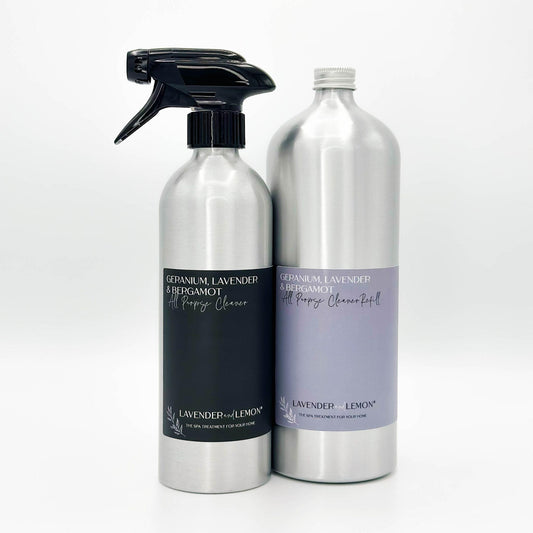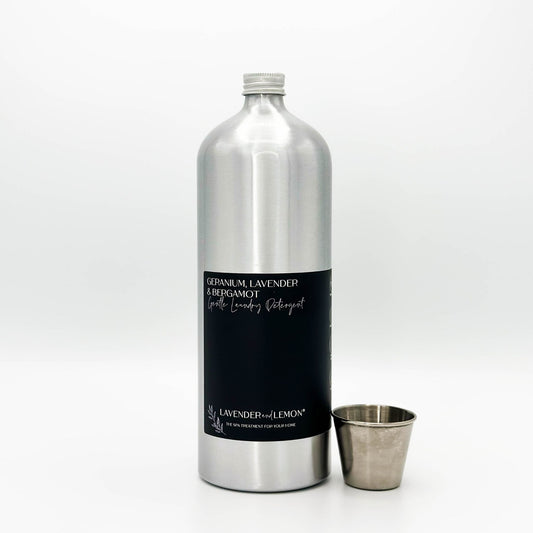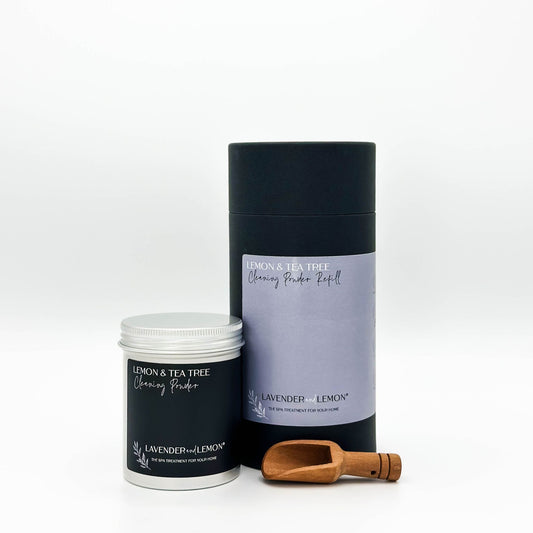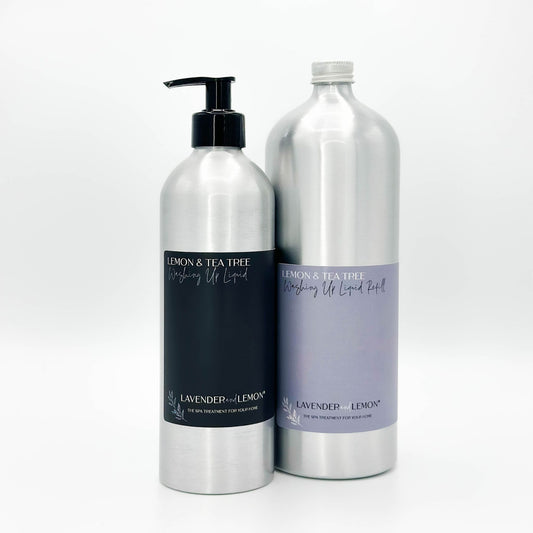Free Shipping Over £35
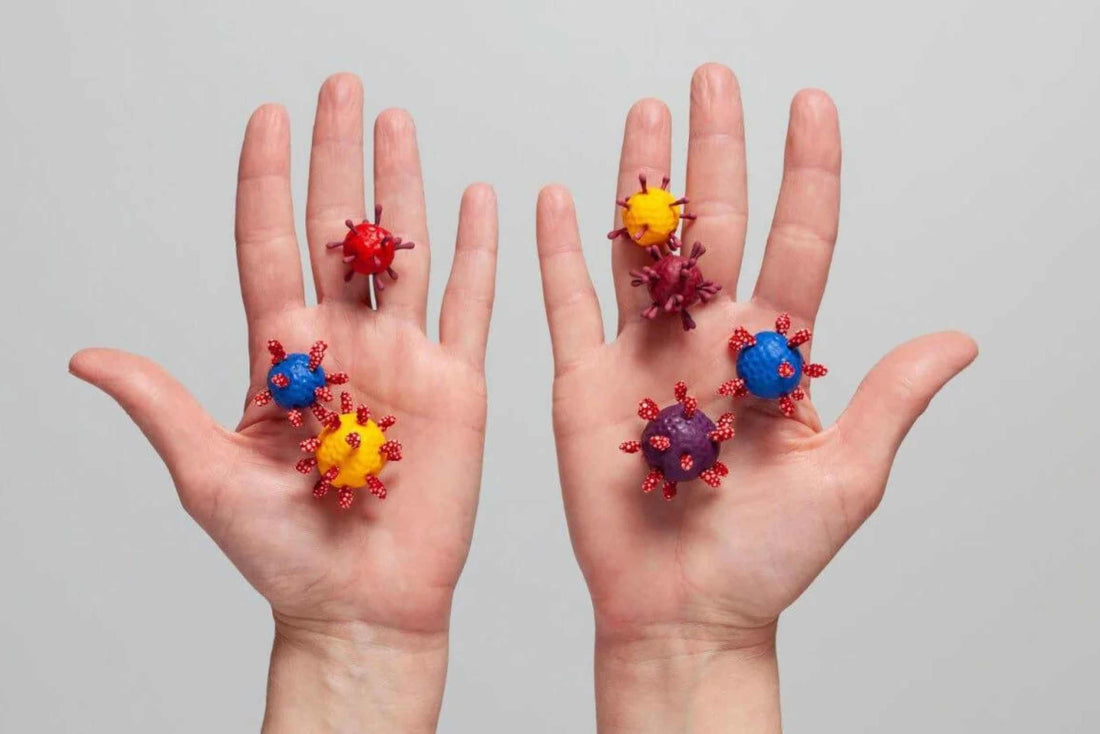
It's Time To Ditch Antibacterial Cleaning Products
Share
Why We Don't Need Antibacterial Cleaning Products at Home
In an era where cleanliness seems synonymous with health, it's no wonder that many households are stocked with various antibacterial cleaning products. These products promise a germ-free environment, suggesting protection from diseases and ensuring a spotless home. But is our obsession with "antibacterial" truly benefiting us, or are there hidden consequences?
Antibacterial cleaning agents target and kill bacteria and sometimes other microbes. These can be found in various products, from hand sanitisers to soaps and even some detergents. It's essential to note that not every cleaning agent is antibacterial, and not every antibacterial product is a cleaner - some are merely disinfectants with no cleaning properties.
Let’s delve into why we might not need these antibacterial warriors at home and their implications on our health and the environment.
Natural Flora: Not All Bacteria Are Bad
A Balanced Biome
Contrary to popular belief, not all bacteria are harmful. Our homes, much like our bodies, host a myriad of microorganisms that co-exist without causing harm. In fact, some bacteria can be beneficial and contribute to a balanced home environment. 1 Overusing antibacterial cleaning products can disrupt this balance, potentially leading to a less diverse bacterial ecosystem in our homes.
The balance of this community plays a role in our overall well-being. Unfortunately, antibacterial agents can't differentiate between friend and foe. In our attempt to rid our environments of harmful bacteria, we might be causing collateral damage to our helpful microbial allies.
Antibacterial Resistance Concerns
Resistance is Futile - Or Is It?
The World Health Organization has warned against the unnecessary use of antibacterial products, citing the risk of bacteria developing resistance. When bacteria become resistant, they evolve to withstand the antibacterial agents, making them harder to kill in the future. This can lead to stronger, more resilient strains of bacteria that pose a greater threat to public health. Each time bacteria encounter these agents, most die, but a resilient few might survive and reproduce. Over time, these survivors can multiply and become the dominant strain against which our regular antibiotics are helpless.2
Potential Allergies and Reactions
Aside from the global threat of antibiotic resistance, there are personal health concerns too. Certain antibacterial chemicals, like triclosan, have been found to be endocrine disruptors, potentially affecting hormone regulation in our bodies. 3 Moreover, some individuals, especially children, may develop allergies or skin reactions to these compounds.
Environmental Implications of Antibacterial Products
Water Systems and Marine Life
When chemicals like triclosan are washed down the drain, they can enter waterways, affecting aquatic life and potentially leading to broader environmental consequences 4. These chemicals can be toxic to marine life, causing disturbances in aquatic ecosystems and potentially disrupting the food chain. Furthermore, because these compounds often degrade slowly, they remain in the environment for extended periods. 5
Superbugs: A New Generation of Bacteria
Once resistant bacteria or "superbugs" enter the natural environment, they can interact with other microbial communities. This increases the risk of resistance genes spreading to a broader range of bacteria, a potential catastrophe for treating a variety of infectious diseases 6.
Opting for eco-friendly and non-antibacterial cleaning solutions can help reduce this environmental impact.
A Balanced Approach to Home Hygiene
With such concerning revelations, it's only logical to seek safer alternatives.
While there are certain situations where antibacterial cleaning might be necessary, such as in homes with immunocompromised individuals, for the average household, regular cleaning practices are adequate. It's essential to understand the balance between cleanliness and the potential risks associated with overusing antibacterial products.
For everyday messes and dirt, gentle cleaning products and natural alternatives are effective.
Natural and Effective Alternatives
Essential Oils
Some essential oils have demonstrated natural antibacterial and antifungal properties. Tea tree oil can combat a range of pathogens while Lavender Essential Oil, which is one of the most commonly cultivated plants in the world on account of its EO properties, has antibacterial activity against clinical strains of bacteria and is used to treat various infections 7.
Soap and Water
It sounds simple, but thorough handwashing with regular soap and water can be one of the most effective defences against disease spread. The physical act of scrubbing helps dislodge and remove bacteria, reducing the need for antibacterials. Soap breaks down many pathogens' outer membranes, effectively neutralizing them 8.

The path to a clean and healthy home doesn't necessarily need to be paved with antibacterial products. While antibacterial cleaning products might offer peace of mind, they aren't usually the best choice for your home. Standard cleaning practices, when done effectively, provide adequate protection against everyday germs and bacteria. Armed with knowledge and safer alternatives, we can foster environments that support our well-being without compromising the delicate balance of our bodies and the planet.
Make a conscious choice today
Opt for balanced, gentle cleaning practices to make your home a haven without harming your health or the environment.
[product=cleaning-powder]
✪ Zero Harmful Chemicals, 100% Sparkle
✪ From Oven to Tiles; One Powder Does It All
✪ Eco-Friendly Deep Clean
[/product]
CITATIONS:
- Popular Science, (2019), Your home’s microbiome, revealed
- World Health Organization, (2020), Antibiotic Resistance
- Breast Cancer Prevention Partners, (2019), Triclosan At A Glance
- EWG, (2017), Triclosan: Not Safe, Not Effective
- Yueh MF, Tukey RH. Triclosan: A Widespread Environmental Toxicant with Many Biological Effects. Annu Rev Pharmacol Toxicol. 2016;56:251-72. doi: 10.1146/annurev-pharmtox-010715-103417. PMID: 26738475; PMCID: PMC4774862.
- Scientific American, (2016), How Drug-Resistant Bacteria Travel from the Farm to Your Table
- Wińska K, Mączka W, Łyczko J, Grabarczyk M, Czubaszek A, Szumny A. Essential Oils as Antimicrobial Agents-Myth or Real Alternative? Molecules. 2019 Jun 5;24(11):2130. doi: 10.3390/molecules24112130. PMID: 31195752; PMCID: PMC6612361.
- FDA, (2019), Antibacterial Soap? You Can Skip It, Use Plain Soap and Water

